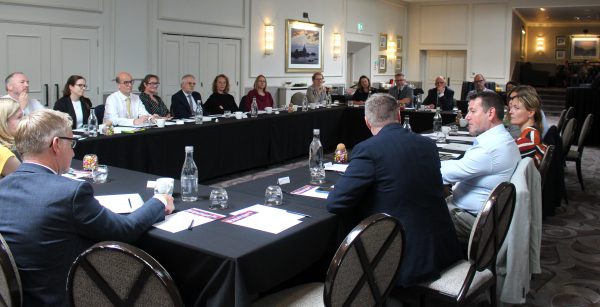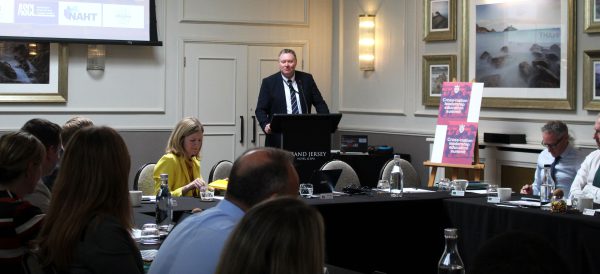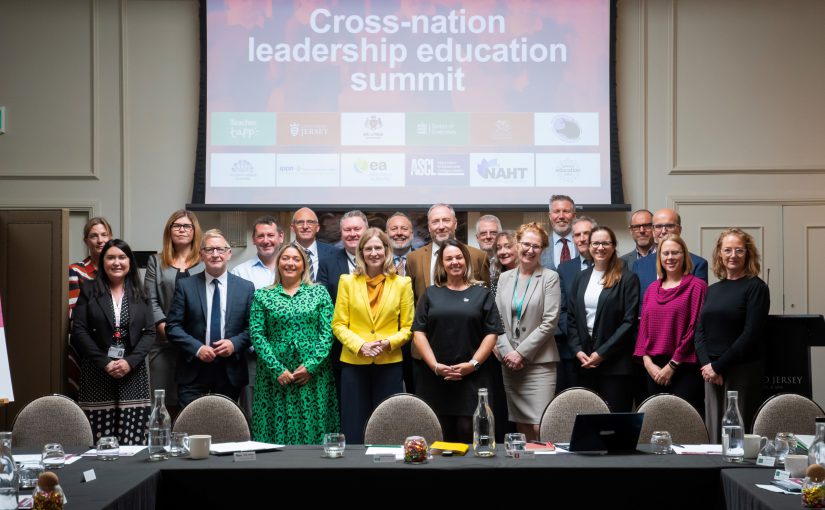At a recent cross-nation Education summit, I joined other Ministers and leaders from across the British Isles to reflect on the future of our education systems. The discussions were rich and wide-ranging and a number of themes stood out during the summit which were inclusion, workforce, demographics and mobile phones.
Equity as a key principle
These are not just policy areas, they are the foundation of how we build an education system that serves every child and young person and they are affecting all of us across the British Isles and beyond.
Across jurisdictions, there was a clear consensus on how we define inclusion. It was agreed we must be precise and intentional. It is not simply about SEND (Special Educational Needs and Disabilities) or Additional Needs. It is about how every child experiences school.
What emerged clearly is that inclusion must be viewed through the lens of the young person. It’s not just about delivering a provision, it’s about young person’s experience. We need to understand that better by asking young people….
Which subjects are you most curious about?
What things do you most enjoy doing in the classroom?
Do you enjoy going to school?
How does school help you able to make friends and play during the school day?

As a photography student, who was capturing the event, so eloquently put it: “Schools need to be looked at as a resource for the young people.”
This sentiment reminds us that providing educational approaches that are equitable is not a technical problem to fix but requires a wider cultural shift in thinking and pedagogical approach. To be successful in the future we must continue to ask ourselves, how can we make our schools places where all the children can learn and thrive?
In Jersey, we are already working on the operational challenges which need to be addressed to make this principle a reality for all children who attend our schools. Despite constant demands being made on our budget we are working to improve facilities for our special schools, within the limit of our current resources.
Early Years
The summit repeatedly returned to the theme of the importance of early years policy in delivering inclusive education. If we are serious about equity, we must start early supporting families, nurturing development, and laying strong foundations for lifelong learning. I was pleased to update Ministers and Union leads at the summit on our plans to introduce a package of measures in early years including enhanced training for the workforce, better access to speech and language therapists and 15 hours per week of free nursery care to 2–3-year-olds.
We have announced today, Monday 29 September, a wider package of investment in early childhood development, which includes £4m in universal support for 2-3-year-old childcare, £1.5m in targeted support for children with additional needs, £0.7m for speech and language therapy following a successful pilot co-delivered with Every Child Our Future and £0.6m to continue successful pilot programmes in schools. This totals an almost £7m investment in early years, subject to approval by the States Assembly in December.
The planned investment of £4m in childcare support for 2-3-year-olds creates an opportunity for families to save up to £6,000 a year in childcare costs. If approved, the offer of up to 15 hours of funded childcare per week during term time will be available to families from 2026 through participating nurseries and childminders.
During the summit it was clear how demographic change as a result of lower fertility rates, is affecting all jurisdictions, but it need not be a threat. It can be an opportunity for innovation.
Community Schools

A recurring theme was the role of schools as places where a wider set of services for children and families can be delivered. This areas of work considers schools as community assets which are treated as more than places of learning. Instead, they are hubs of integrated services, connection and resilience. Yet, using schools for community purposes brings practical challenges which need to be resolved. For example:
Who opens and locks the doors at night and weekends when school staff are not there? Who pays the utility bills out of school time?
Despite these hurdles, there was a very strong ambition and willingness to find a solution. As we shape the future of education in Jersey, these reflections from the summit offer both challenge and inspiration.
We must:
- Embrace demographic change as a chance to innovate focusing on equity, wellbeing and outcomes
- Nurture schools as community assets
Education is not just about systems. It is about people. And when we listen to young people, invest in their futures, and build schools that serve them fully, we are create a society that is fairer, stronger, and more inclusive.
I would like to thank and pay tribute to everyone who attended the conference for their input and openness, and I look forward to this becoming an annual event so we can continue the conversations and collaborate on shaping the future of education.
Pictures: Year 13 Hautlieu School Photography Students: Bronte Thomas, Finn Lightbody and Rodrigo Da Cruz
 blog.gov.je
blog.gov.je